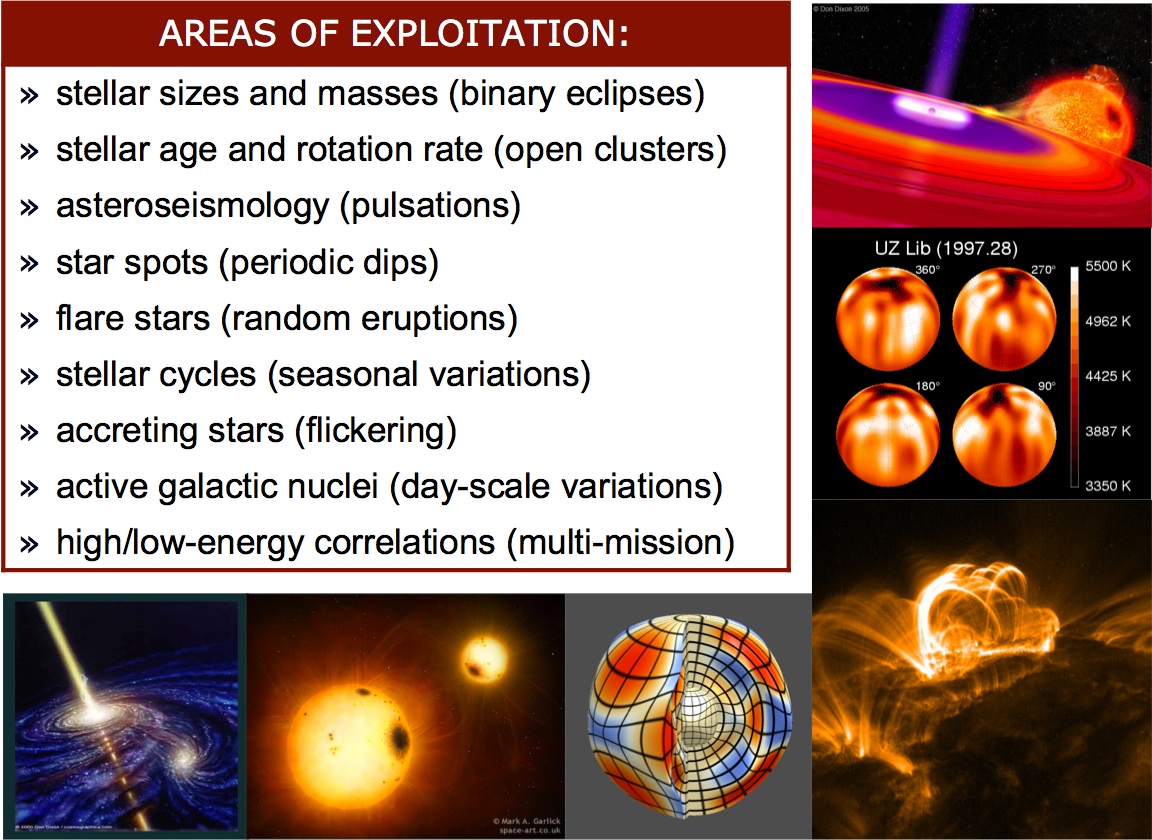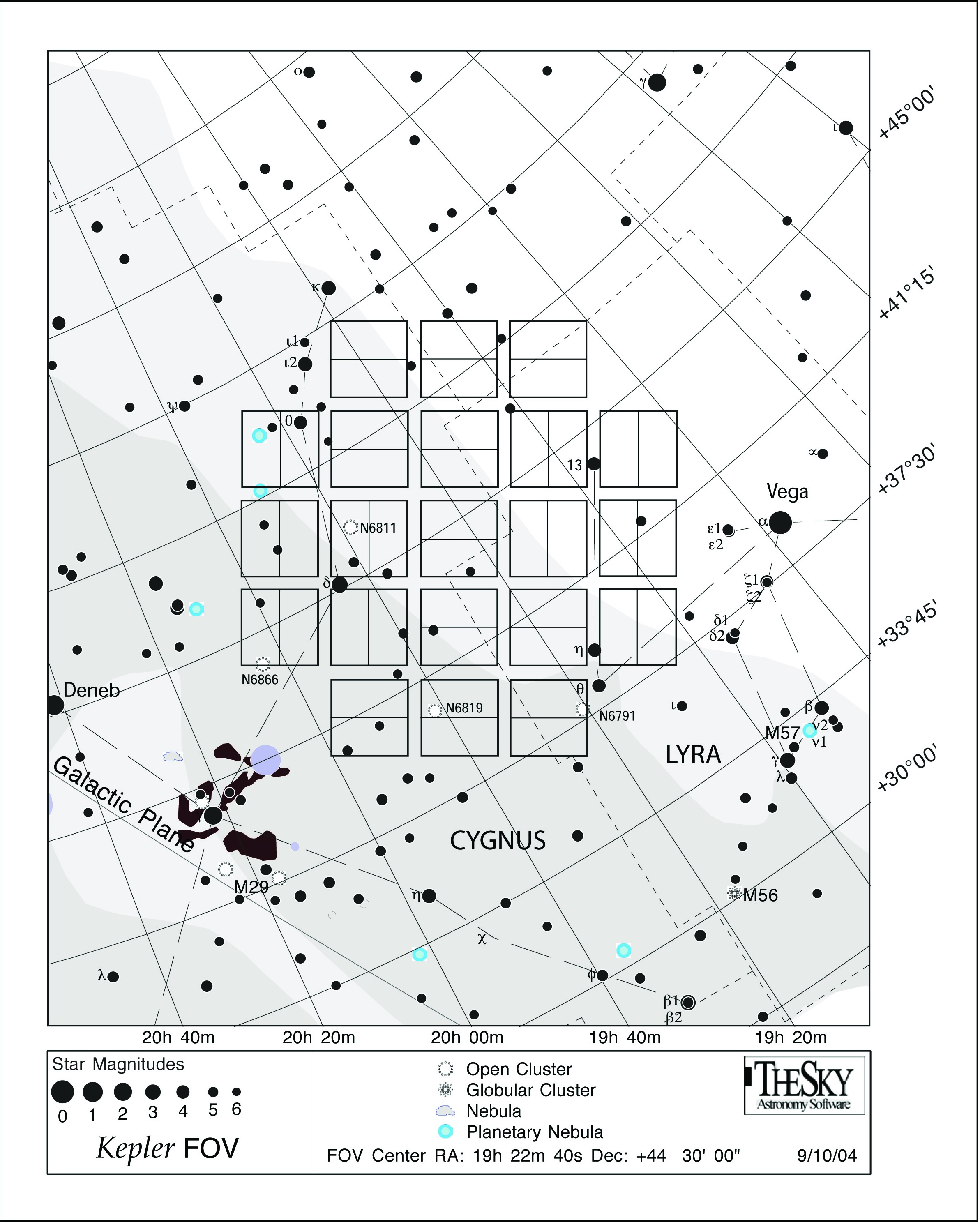|
|
|
||

| |||
| Guest Observer Program | |||
|
Members of the community can propose on an annual cycle to use the Kepler photometer for funded, focused astrophysics investigations. While any source within the Kepler field-of-view can be targeted, the proposed science cannot overlap the Kepler Key Project. The following graphic lists potential areas of investigation which might be proposed by Guest Observers (GOs). GO investigations are not limited to these science areas; proposals for other sources and science are greatly encouraged. In addition to the annual funded proposal cycle, there is also a quarterly unfunded opportunity to propose small numbers of targets. The formal scope of these GO proposals is provided below the graphic. |
|||

|
|||
| Scope |
|
Kepler continuously monitors a 115 square degree field-of-view in the Cygnus region (centered upon α = 19h 22m 40s, δ = 44° 30' 00''), with the objective of photometrically detecting transits of Earth-size planets in the habitable zones of Sun-like stars. The instrument’s high-precision photometric capability, with two available cadence modes: 1 and 30-minutes, is well-suited to asteroseismology research and other variability analyses of both stellar and extragalactic sources. The Kepler Guest Observer (GO) Office solicits proposals from the astronomy community for:
Proposals for the Cycle 4 Kepler Guest Observer solicitation are due on 16 Dec 2011. Successful proposers will be notified approximately 4 months after the submission deadline, with data collection set to begin during June 2012.
|
|

Footprint of the Kepler FOV on the sky. Click on the image for a higher resolution display. |
Instructions concerning Guest Observer proposals are provided on the Proposal Preparation page. A publicity flyer for the Kepler Guest Observer Program can be downloaded from here. Feel free to display it on department, walls, doors and coffee tables. Director's Discretionary Targets (DDTs) The standard GO competition occurs on an annual cycle. Given the proposal review timeline, associated data processing and archive activities, there is currently a 6-month delay between GO proposal submission and first observations, and a 1-year wait between proposal submission and the delivery of the first GO data. To provide a faster mechanism for headline Kepler astrophysics, we provide an alternative means for acquiring Kepler data, through the Director's Discretionary Target (DDT) program. The DDT program is a quarterly competition. Observations can be proposed for at any time; approved targets will be added during the next spacecraft roll. Up to 100 DDTs are available each quarter. No funding will be provided for DDTs. Proposals from all institutions and countries are encouraged. The proposal process is informal, requiring an email request from the proposer to the . There is no peer review of DDTs; program target selection is at the discretion of the GO Office Director. The purpose of the DDT program is to:
DDT proposals can be submitted at any time, however in order to include sources within the next quarter proposers must submit requests before these dates: Jan 24, Apr 23, Jul 24, Oct 24. Target overlap with the current cycle Guest Observer program will not be considered. Next:
Key Project
Questions concerning Kepler's science opportunities and open programs, public archive or community tools? Contact us via the email address. |